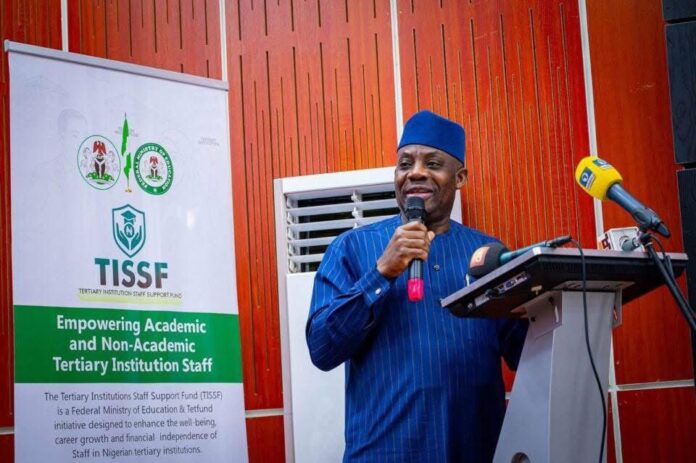ABUJA — The Federal Government has announced a sweeping reform of admission requirements into Nigeria’s universities, polytechnics, colleges of education, and Innovation Enterprise Academies (IEAs) in a bid to make higher education more accessible and inclusive.
The new policy, unveiled on Tuesday in a statement signed by Boriowo Folasade, Director of Press and Public Relations at the Federal Ministry of Education, is part of the government’s Renewed Hope Agenda aimed at promoting equal educational opportunities and national development.
According to the statement, the reform — driven by the Minister of Education, Dr Maruf Tunji Alausa — will remove some of the long-standing entry barriers that have prevented many qualified students from gaining admission.
One of the key changes is that mathematics will no longer be compulsory for students applying to certain arts and humanities programmes, a move designed to give more students a fair chance at pursuing their chosen careers.
Dr Alausa said the review became necessary after years of concern over limited access to tertiary education. He explained that despite over two million candidates sitting for the Unified Tertiary Matriculation Examination (UTME) each year, only about 700,000 gain admission — leaving a huge number of capable students stranded.
“Many bright young Nigerians are denied the opportunity to further their education simply because of rigid and outdated entry requirements,” the Minister said.
“This reform will ensure that our tertiary institutions become more inclusive and responsive to the needs of our society.”
The new framework, he added, is expected to enable tertiary institutions across the country to admit an additional 250,000 to 300,000 students annually, thereby reducing the number of qualified candidates left out each year.
Dr Alausa emphasised that the reform supports the government’s goal of building a more skilled, innovative, and educated workforce capable of driving Nigeria’s development.
Education experts have welcomed the policy, describing it as a “timely and progressive step” that could reshape the future of higher learning in Nigeria.
The Ministry of Education said detailed guidelines on how institutions will implement the new policy will be released soon.



